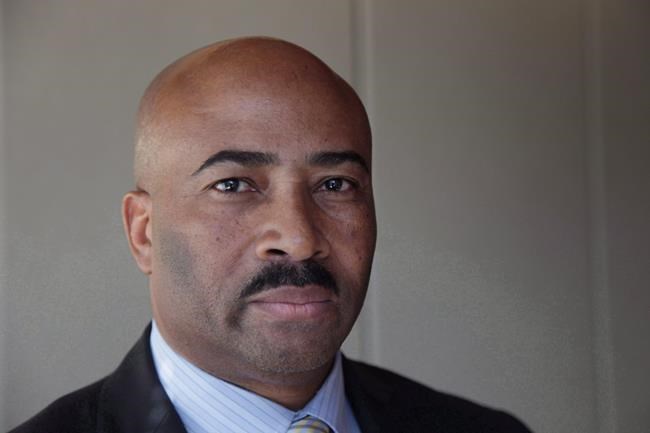OTTAWA — Some staff working for then-senator Don Meredith suffered harassment, including sexually, and the Senate's administrative committee regrets that, it said Thursday.
The committee is also exploring financial compensation for the women targeted by Meredith, who resigned from the Senate in 2017.
Sen. Sabi Marwah, the chair of the Senate's committee on internal economy, budgets and administration, said in the chamber that Meredith's actions warrant "an unequivocal condemnation from the Senate and from all senators."
"Workplace harassment of any kind is unacceptable and has no place in the Senate of Canada," said Marwah.
His words were welcomed by Brian Mitchell, a lawyer representing two of the six former staff members Meredith has been found to have preyed upon.
"It's a historic day," said Mitchell in a phone interview, as his clients listened. They have not been named publicly.
Mitchell said neither he nor his clients were made aware of the expression of regret until it was made public in a press release.
Earlier this week he sent a memo to Marwah and the other senators on the committee heavily critical of the process that has taken almost six years for his clients to get recognition of their suffering.
Almost a year ago, the Senate's ethics officer issued a report following a lengthy investigation into Meredith's conduct. Meredith, appointed to the Senate on the advice of prime minister Stephen Harper in 2010, was found to have repeatedly harassed and sexually harassed multiple employees, including with bullying, intimidation, kissing and touching.
Meredith had already resigned two years earlier, following a separate investigation and recommendations by the Senate's ethics committee that he be expelled for using his position of power to pursue a sexual relationship with a teenager.
Because Meredith had quit, the ethics committee could do no more with the second report, and the administrative committee took it up instead.
In February the group heard testimony from some of the staff at an in-camera meeting. Five days later, Mitchell and his clients provided the committee with a list of things they wanted, including an apology, compensation, and an place for the women in drafting sexual harassment policies to protect other women employed in the Senate.
They also want the Senate to establish a fund for victims to turn to so they can hire lawyers or other professionals to help them bring complaints.
Nothing appeared to happen after that, so this week Mitchell said he sent a memo decrying the length of the process, calling it "unconscionable" for his clients to still be waiting. Some of the incidents date back to at least 2013.
On Thursday, the committee agreed to issue a "formal statement of regret" and hire an outside expert to determine appropriate compensation.
The committee says the evaluator's determination will be based on other recent harassment settlements in the RCMP, Canadian Armed Forces and Department of National Defence.
Marwah issued the statement of regret in the upper chamber on behalf of the committee Thursday afternoon.
"To the employees who were impacted, we believe you," he said.
"We also acknowledge, fully recognize and profoundly regret the pain and trauma caused by what you endured in the workplace. We want you to know that the Senate is working to prevent what happened to you from happening again."
Mitchell said he sees the statement as an apology and an acknowledgment of the physical, emotional and psychological trauma the women experienced. He has some concerns about the compensation process because there are no specifics about the mandate or parameters.
The women have until July 15 to decide to participate in that process, said Mitchell and he said he will be seeking some clarity about it before his clients make decisions.
This report by The Canadian Press was first published June 25, 2020.
Mia Rabson, The Canadian Press




